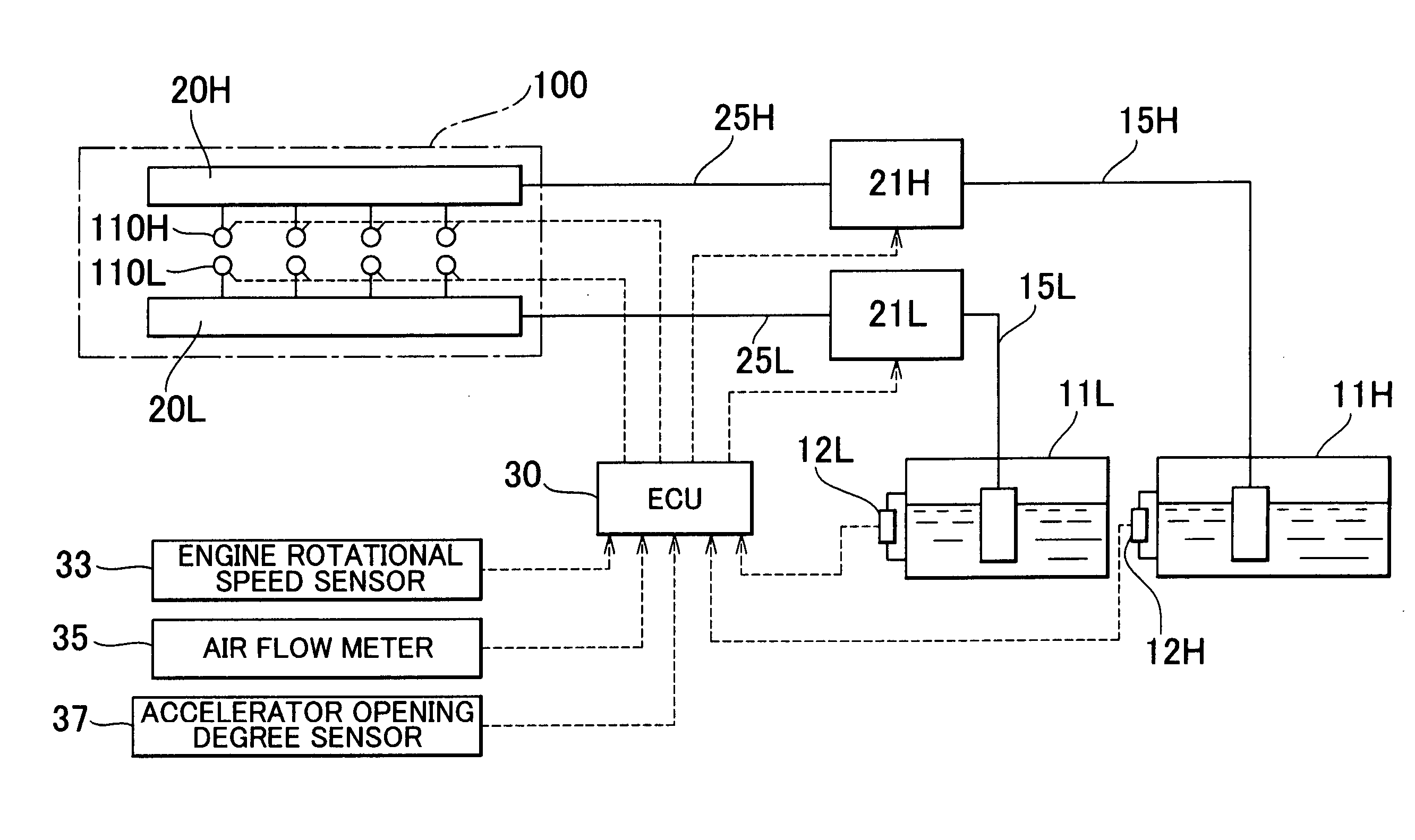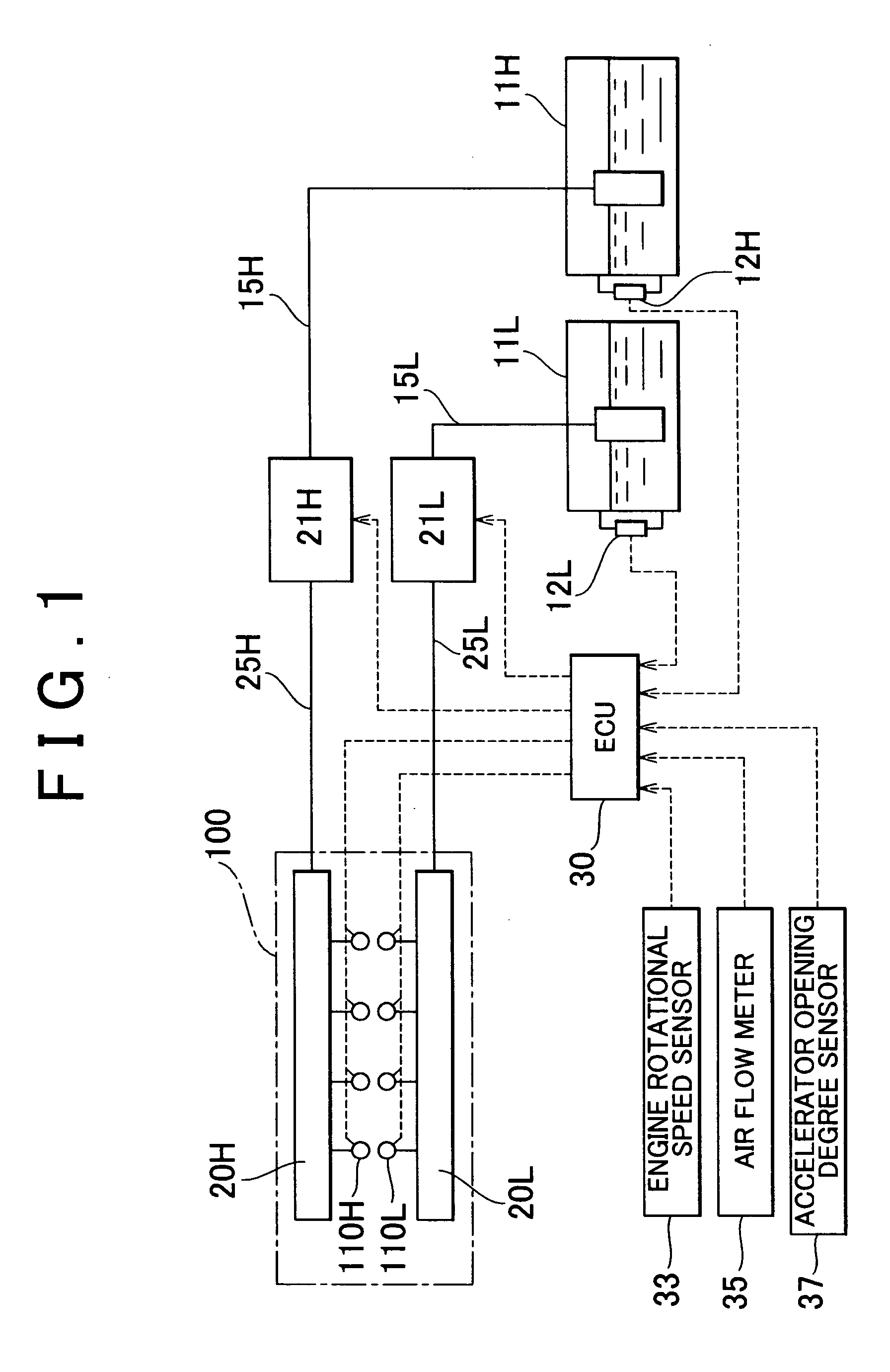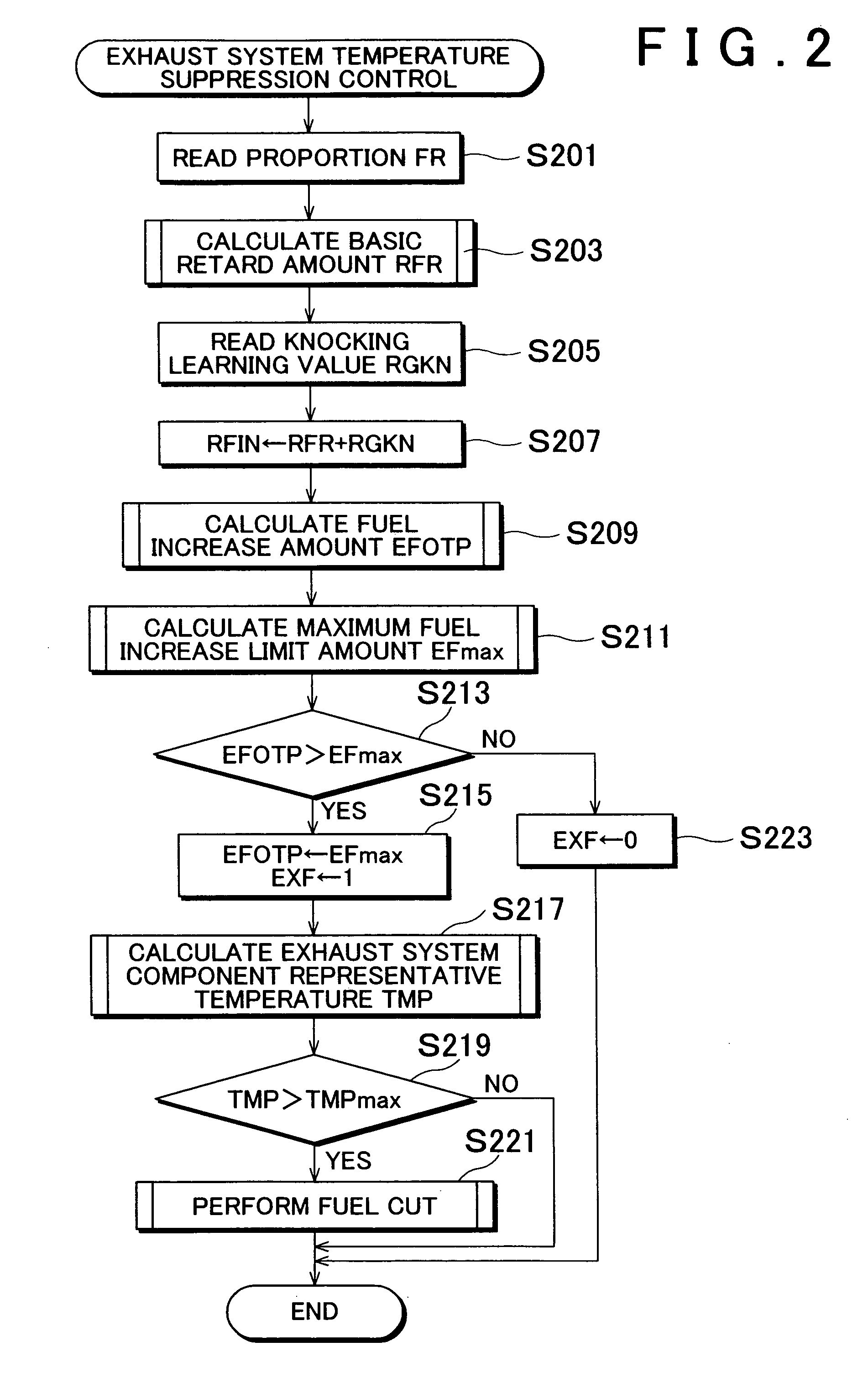Control apparatus and control method for internal combustion engine
a control apparatus and control method technology, applied in the direction of electric control, ignition automatic control, machines/engines, etc., can solve the problems of excessively rich air-fuel mixture in the combustion chamber, increase in the effective lifetime of the components of the exhaust system, and increase in the temperature of the exhaust gas in the gasoline engine, so as to prevent the occurrence of misfire and prevent overheating the exhaust system
- Summary
- Abstract
- Description
- Claims
- Application Information
AI Technical Summary
Benefits of technology
Problems solved by technology
Method used
Image
Examples
first embodiment
[0049] In a first embodiment, it is determined whether a misfire may occur in the engine if the fuel supply amount is increased in order to suppress the increase in the exhaust system temperature. When it is determined that a misfire may occur, fuel cut is performed so that the exhaust system temperature is decreased without increasing the fuel supply amount.
[0050] In other words, every time the engine is operated in an engine operating region in which a misfire may occur if the fuel supply amount is increased in order to suppress the increase in the exhaust system temperature, the fuel cut is performed. As a result, the engine is prevented from being operated in the aforementioned region. Therefore, it becomes possible to maintain the exhaust system temperature at or below the upper limit temperature without causing a misfire in the engine due to a rich air-fuel ratio.
[0051]FIG. 2 is a flow chart explaining the operation of the aforementioned control for suppressing the increase i...
third embodiment
[0080] That is, in this embodiment as well, when the fuel supply amount is increased such that the air-fuel ratio becomes richer than the air-fuel ratio at which the air-fuel mixture can be ignited at the ignition timing decided based on the present retard amount RFIN, the fuel cut is performed. FIG. 4 is a flow chart explaining the operation of the exhaust system temperature suppression control according to the The control operation is performed by the ECU 30 at predetermined time intervals.
[0081] In the control operation shown in FIG. 4, first, the fuel increase amount EFOTP is calculated in step S401. The fuel increase amount EFOTP is calculated by the operation (not shown) performed by the ECU 30 separately in the same manner as in the first embodiment that has been described with reference to FIG. 2.
[0082] Then, in step S403, the misfire limit ignition timing EAMIS corresponding to the present fuel increase amount EFOTP is calculated. The values of the misfire limit ignition ...
fourth embodiment
[0089]FIG. 5 is a flow chart specifically explaining the operation of the exhaust system temperature suppression control according to the aforementioned The control operation is performed by the ECU 30 at predetermined time intervals.
[0090] In the control operation shown in FIG. 5, first, the proportion FR is read in step S501, and the knocking learning value RGKN is read in step S503. In step S505, the maximum engine intake air amount GAmax is calculated based on the proportion FR and the knocking learning value RGKN.
[0091] As described above, the maximum engine intake air amount GAmax is the upper limit value of the engine intake air amount, at or below which the exhaust system component representative temperature TMP can be maintained at or below the maximum allowable temperature TMPmax without causing a misfire due to a rich air-fuel ratio. The operation for calculating the maximum engine intake air amount GAmax in step S501 to step S505 in FIG. 5 is the same as the operation ...
PUM
 Login to View More
Login to View More Abstract
Description
Claims
Application Information
 Login to View More
Login to View More - R&D
- Intellectual Property
- Life Sciences
- Materials
- Tech Scout
- Unparalleled Data Quality
- Higher Quality Content
- 60% Fewer Hallucinations
Browse by: Latest US Patents, China's latest patents, Technical Efficacy Thesaurus, Application Domain, Technology Topic, Popular Technical Reports.
© 2025 PatSnap. All rights reserved.Legal|Privacy policy|Modern Slavery Act Transparency Statement|Sitemap|About US| Contact US: help@patsnap.com



